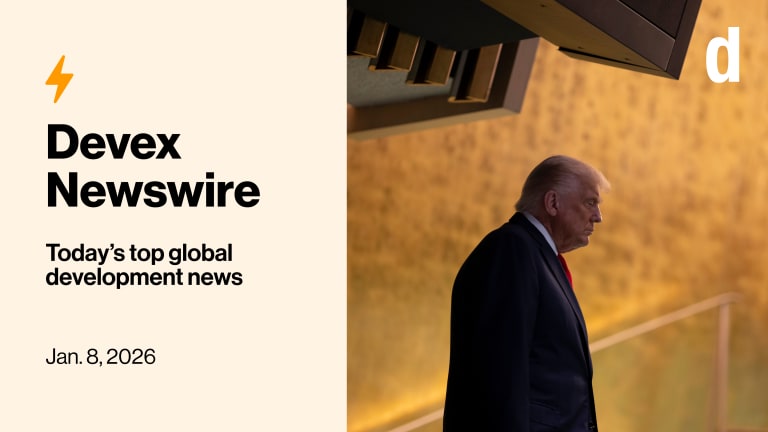
Editor’s Note: On Tuesday, U.K. Prime Minister Boris Johnson announced that the Department for International Development would be merged with the Foreign & Commonwealth Office, which it was originally spun out of in 1997. Here, Clare Short, who ran the department from its creation until 2003, reflects on that decision.
The Foreign Office was always opposed to the establishment of a separate department, headed by a Cabinet minister with the authority across Whitehall that flows from that status. In the early days, it did all it could to undermine the newly formed Department for International Development.
Opponents say the announcement marks the culmination of a slow drain on DFID's influence and worry about what it means for the future direction of U.K. aid.
The case for the separate department is that if the U.K. wishes to work systematically to reduce poverty and help create a sustainable world order, then it is essential to have a department committed to that agenda. Foreign Office thinking is necessarily dominated by short-term political and trade interests.
In the end, of course, all governments must decide what policy to pursue and where their priorities lie. But without DFID there to argue the long-term interest for a more just and sustainable world order, it will not be even considered. When DFID’s predecessor, the Overseas Development Administration, was a separate ministry subject to the final authority of the foreign secretary, development policies were constantly undermined and distorted.
After DFID was established in 1997, we reshaped all our policies behind the analysis contained in the Development Assistance Committee’s “Shaping the 21st Century” report, published in May 1996. This looked at progress in development over the last 50 years and proposed building on what had been achieved but combining our efforts more ambitiously.
The aim was to halve the proportion of people living in poverty; get all children into primary education; make measurable progress on gender equality and access to reproductive health care; and reduce infant, child, and maternal mortality. The report also proposed making mutual agreements with our development partners, improving coordination of assistance in support of locally owned development strategies, and a determination to achieve coherence between aid and other policies that impact developing countries.
[Boris Johnson] intends to dismantle the one part of our foreign policy capacity that is effective and widely respected.
—We reshaped all we did to achieve these objectives — not just in our own programs but also in the international development system. The U.K. became one of the more influential voices in international development. It helped to improve the effectiveness of its own programs and those of the World Bank, the regional development banks, the United Nations agencies, and the International Monetary Fund in developing countries. Bilateral programs were long-term partnerships with some of the poorest countries and helped to deliver sustainable improvements in education, health, and other services.
We were also influential in getting the world to commit to the Millennium Development Goals, which led to a united global effort to mark the new millennium by uniting to systematically reduce poverty, improve health care, and get all children to school. We also worked to resolve conflict and to improve the effectiveness of the international system in dealing with humanitarian disasters.
Just at a time when the world is facing a global health emergency and an existential threat from climate change, Boris Johnson has decided to dismantle one of the most effective development organizations and subject it to the consideration of short-term British interests, as his statement to the House of Commons made clear.
Intelligence, self-interest, and moral considerations require us to help build a world capable of cooperating globally to beat the current coronavirus pandemic. It must be controlled everywhere, or it will come back to each of our countries in successive waves. We also need unprecedented global cooperation to contain the catastrophic challenge of climate change.
Boris Johnson's time as foreign secretary was widely recognized to be deeply unimpressive. His government’s role in dealing with COVID-19 has given the U.K. one of the worst death tolls in the world. And now he intends to dismantle the one part of our foreign policy capacity that is effective and widely respected.
The U.K. has left the European Union and is struggling to decide whether it wants to commit to a trade agreement with the world’s largest trading bloc. The U.K. is going to find itself very lonely at a time of a massive global economic depression. But to build what Johnson laughably calls “Global Britain,” he will destroy the strongest instrument of the U.K.’s soft power.








